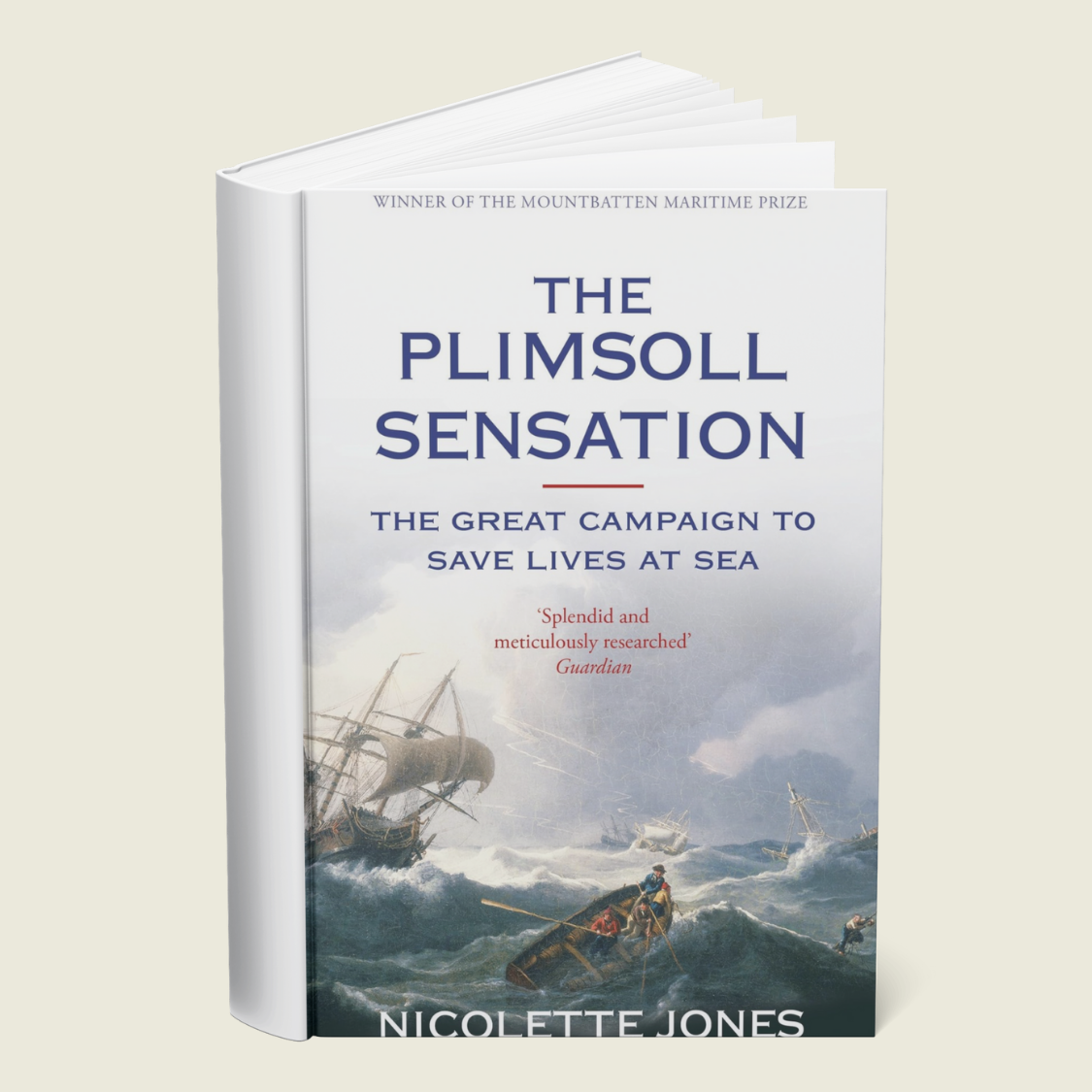The Background Story of The Plimsoll Sensation by Nicolette Jones
In 1995 I moved into Plimsoll Road in north London. A few doors down was a pub called The Plimsoll, with a trainer stuck in the middle of its pub sign. Around the edges of the sticker was a scrap of grey sea.When the pub changed name a few years later, a strange impulse prompted me to buy the sign—an ugly object that revealed, with the trainer stripped off, the Plimsoll mark, and the name and dates of Samuel Plimsoll, 1824-1898.
Published in May 2007 by Little Brown
-
I knew then that the Plimsoll line was the level of maximum submergence marked on a ship, but other than that nothing about the man it was named after. I began to find out about him, and discovered a story of such resonance and irresistible drama, and a character so compelling, that my idle curiosity became something of an obsession.
Plimsoll had fought a timeless fight, I discovered, against the greed of those who made profits, on behalf of those who took risks to provide the profit. Encountering resistance to his proposed life-saving safety measures from shipowners, including some in the House of Commons where he was an MP, Plimsoll turned for support to a nation that responded with tumultuous enthusiasm. I discovered, to my delight, novels, plays, music hall songs and poems his decade-long campaign inspired.
The story was vivid and involving even to someone who had not previously paid attention to the merchant marine. When I learnt of Plimsoll losing his temper in a famous outburst in the House of Commons, I could see and hear him, shouting and trembling with rage, while his wife scattered copies of a protest from the ladies’ gallery onto the press gallery beneath her. The parades and cheering crowds that applauded Plimsoll’s cause; the doomed sailors saying farewell to their sweethearts; the desperate mariners clinging onto the masts
of sinking ships; the uncooperative captain who painted a Plimsoll mark on the funnel of his ship … such images as these emerged from the contemporary accounts I read, and caught me up.I was moved to tears by Plimsoll’s rhetoric and entertained by his stroppy
defiance, and wrought upon by the sufferings of those who drowned or were bereaved. The greed, negligence, callousness, racism and deviousness of the evil-doers in this tale were shocking. And the story of the machinations in the corridors of power, and the crisis that nearly ousted Disraeli from office, seemed to be a slice of political history we should not forget.Nor, I thought, should we forget the tenacity of one man and his wife in
pursuing an altruistic end at any cost to themselves. Sincere and intensely
empathetic, unstuffy and plain-speaking, and ahead of his time in much of his thinking, Plimsoll was someone I was very glad to get to know.The pub sign is now in my back garden. The house is full of Plimsoll
memorabilia. And I can’t leave the subject alone even now the book is
published.
“This enthusiastically reviewed, scrupulously researched and prize-winning book, which was a BBC Radio 4 Book of the Week, chronicles a resonant episode of Victorian history. It is the tale of the agitation led by Samuel Plimsoll MP, ‘The Sailor’s Friend’, and by his wife Eliza, who worked together to defend sailors against nefarious practices
including overloading and the use of unseaworthy ‘coffin-ships’. The backlash of libel cases and vilification almost ruined Plimsoll, but his drive and passion made him feverishly popular with the public; he was the subject of plays, novels, street ballads and music hall songs. With the demonstrative support of the nation, he faced down his enemies, came close to ousting Disraeli’s government and achieved lasting safety measures for merchant sailors, including the load line that bears his name. Nicolette Jones throws light on a cross-section of Victorian society and tells the story of an epic legal, social, and political battle for justice, which is still an inspiring example of how the altruism and courage of determined individuals can make the world a better place.”

